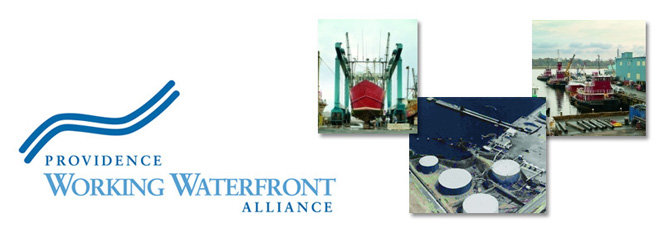This week’s Providence Business News features an article and an editorial about how Rhode Island’s ports are working to attract short sea shipping. Both the Port of Providence and Quonset/Davisville have recently expressed interest in being designated as Marine Highway Corridors by the U.S. Maritime Administration. With this designation, Rhode Island ports would be eligible to tap into millions of dollars in federal funding for infrastructure improvements to accomodate short sea shipping operations.
From the Short sea shipping support growing article:
Cohen said several Allens Avenue properties, including Promet’s, could handle the shallow-draft vessels needed for short sea shipping. And ProvPort, which has the deepest port in New England since a 2006 dredging, could easily handle the ships, he added. “There’s a multiplicity of available properties between here and Quonset,” he said, adding, “Although we’re not looking to compete with Quonset.”
In a February letter to MARAD, Waterson Facility Director Stephen Curtis wrote, “Our facility is best suited to respond to this opportunity because of our distinct advantages; large laydown areas, deep channel and dock access, strong tenant base, ability to attract smaller niche cargoes and our close proximity to [Interstate 95].”
From the Mapping a new way to sea lane success editorial:
Rhode Island is trying to get itself on the map – specifically, on the federal map of approved shipping routes for the nation’s “Maritime Highway.”
The hope is to make Providence and Quonset Point become part of a network of short sea shipping ports. Short sea shipping uses a series of small ocean-going vessels to offload cargo closer to its final destination, and it is an alternative to the more expensive deep-sea container business that unloads huge ships at large ports and puts the cargo onto trucks for lengthy highway transport.
It takes a lot less money to prepare the ports to accept such trade – estimates are $5 million compared with $160 million for the deep-sea container business. But the boon to business could be significant.
All the details – specific cost breakdowns for preparing the ports of Providence and Davisville for short sea shipping, potential return on investment, environmental impact – have not been worked out. But first things first, get the ports on the map as a possible prelude to a much more robust shipping industry here.

